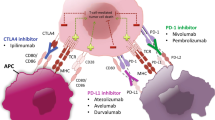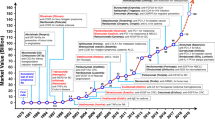Abstract
Antibody-drug-conjugates (ADCs) are an emerging class of biological therapeutics. Mirvetuximab soravtansine is a novel folate receptor alpha (FRα)-targeting ADC which represents a potential new treatment for patients with ovarian and other FRα-positive cancers. Since patient immune responses to biological therapeutics may negatively affect drug efficacy and patient safety, regulatory authorities require rigorous monitoring of patient samples. Taking advantage of the immune system’s ability to generate highly specific antibodies, the field has turned to anti-idiotype antibodies as powerful tools for the development of sensitive and specific bioassays. Here, we report the generation and characterization of a highly specific neutralizing anti-idiotype antibody directed against M9346A, the antibody moiety of mirvetuximab soravtansine. The anti-idiotype antibody recognizes M9346A with double-digit picomolar affinity, competes with folate receptor antigen for binding to M9346A, and can be used to develop both anti-drug-antibody and neutralizing antibody assays.





Similar content being viewed by others
References
Sassoon I, Blanc V. Antibody-drug conjugate (ADC) clinical pipeline: a review. Methods Mol Biol. 2013;1045:1–27.
Lipsky PE, Calabrese LH, Kavanaugh A, Sundy J, Wright D, Wolfson M, et al. Pegloticase immunogenicity: the relationship between efficacy and antibody development in patients treated for refractory chronic gout. Arthritis Res Ther. 2014;16(2):R60.
Hock MB, Thudium KE, Carrasco-Triguero M, Schwabe NF. Immunogenicity of antibody drug conjugates: bioanalytical methods and monitoring strategy for a novel therapeutic modality. AAPS J. 2015;17(1):35–43.
de Cerio AL-D, Zabalegui N, Rodríguez-Calvillo M, Inogés S, Bendandi M. Anti-idiotype antibodies in cancer treatment. Oncogene. 2007;26(25):3594–602.
Lopez-Requena A, Burrone OR. Anti-idiotypic antibodies and tumor-only antigens: an update. Open Immunol J. 2009;2:1–8.
Baral R, Sherrat A, Das R, Foon KA, Bhattacharya-Chatterjee M. Murine monoclonal anti-idiotypic antibody as a surrogate antigen for human Her-2/neu. Int J Cancer. 2001;92(1):88–95.
Gorovits B, Wakshull E, Pillutla R, Xu Y, Manning MS, Goyal J. Recommendations for the characterization of immunogenicity response to multiple domain biotherapeutics. J Immunol Methods. 2014;408:1–12.
Roguska MA, Pedersen JT, Keddy CA, Henry AH, Searle SJ, Lambert JM, et al. Humanization of murine monoclonal antibodies through variable domain resurfacing. Proc Natl Acad Sci. 1994;91(3):969–73.
Mire-Sluis R, Barrett YC, Devanarayan V, Koren E, Liu H, Maia M, et al. Recommendations for the design and optimization of immunoassays used in the detection of host antibodies against biotechnology products. J Immunol Methods. 2004;289(1–2):1–16.
Gupta S, Indelicato SR, Jethwa V, Kawabata T, Kelley M, Mire-Sluis AR, et al. Recommendations for the design, optimization, and qualification of cell-based assays used for the detection of neutralizing antibody responses elicited to biological therapeutics. J Immunol Methods. 2007;321:1–18.
Shankar G, Devanarayan V, Amaravadi L, Barrett YC, Bowsher R, Finco-Kent D, et al. Recommendations for the validation of immunoassays used for detection of host antibodies against biotechnology products. J Pharm Biomed Anal. 2008;48:1267–81.
Harris RJ. Processing of C-terminal lysine and arginine residues of proteins isolated from mammalian cell culture. J Chromatogr A. 1995;705:129–34.
Rosenberg AS. Immunogenicity of biological therapeutics: a hierarchy of concerns. Dev Biol (Basel). 2003;112:p15–21.
Ylera F, Harth S, Waldherr D, Frisch C, Knappik A. Off-rate screening for selection of high-affinity anti-drug antibodies. Anal Biochem. 2013;441:208–13.
Chin SE, Ferraro F, Groves M, Liang M, Vaughan TJ, Dobson CL. Isolation of high-affinity, neutralizing anti-idiotype antibodies by phage and ribosome display for application in immunogenicity and pharmacokinetic analyses. J Immunol Methods. 2015;416:49–58.
Di Niro R, Sblattero D, Florian F, Stebel M, Zentilin L, Giacca M, et al. Anti-idiotypic response in mice expressing human autoantibodies. Mol Immunol. 2008;45(6):1782–91.
Wang X, Quarmby V, Ng C, Chuntharapai A, Shek T, Eigenbrot C, et al. Generation and characterization of a unique reagent that recognizes a panel of recombinant human monoclonal antibody therapeutics in the presence of endogenous human IgG. MAbs. 2013;5(4):540–54.
Lofgren JA, Dhandapani S, Pennucci JJ, Abbott CM, Mytych DT, Kaliyaperumal A, et al. Comparing ELISA and surface plasmon resonance for assessing clinical immunogenicity of panitumumab. J Immunol. 2007;178(11):7467–72.
Zhao Q, Wong PF, Lee SST, Leung SO, Cheung WT, Wang JZ. Generation of anti-idiotype scFv for pharmacokinetic measurement in lymphoma patients treated with chimera anti-CD22 antibody SM03. PLoS One. 2014;
Baker MP, Reynolds HM, Lumicisi B, Bryson CJ. Immunogenicity of protein therapeutics: the key causes, consequences and challenges. Self Nonself. 2010;1(4):314–22.
Chirmule N, Jawa V, Meibohm B. Immunogenicity to therapeutic proteins: impact on PK/PD and efficacy. AAPS J. 2012;14(2):296–302.
Schellekens H, Hennink WE, Brinks V. The immunogenicity of polyethylene glycol: facts and fiction. Pharmaceutical Research. 2013; (30) 1067–7.
Layton GT, Stanworth DR, Amos HE. Factors influencing the immunogenicity of the haptenic drug chlorhexidine in mice-part I. Molecular requirements for the induction of IgE and IgG anti-hapten antibodies. Mol Immunol. 1987;24(2):133–41.
Hoofring S A, Lopez R, Hock MB, Kaliyaperumal A, Patel SK, Swanson SJ, et al.. Immunogenicity testing strategy and bioanalytical assays for antibody-drug conjugates. Bioanalysis. 2013; p.1041–55.
Jawa V, Cousens LP, Awwad M, Wakshull E, Kropshofer H, De Groot AS. T-cell dependent immunogenicity of protein therapeutics: preclinical assessment and mitigation. Clin Immunol. 2013;149:534–55.
Author information
Authors and Affiliations
Corresponding author
Rights and permissions
About this article
Cite this article
Loebrich, S., Shen, M., Cohen, E. et al. Development and Characterization of a Neutralizing Anti-idiotype Antibody Against Mirvetuximab for Analysis of Clinical Samples. AAPS J 19, 1223–1234 (2017). https://doi.org/10.1208/s12248-017-0098-0
Received:
Accepted:
Published:
Issue Date:
DOI: https://doi.org/10.1208/s12248-017-0098-0




